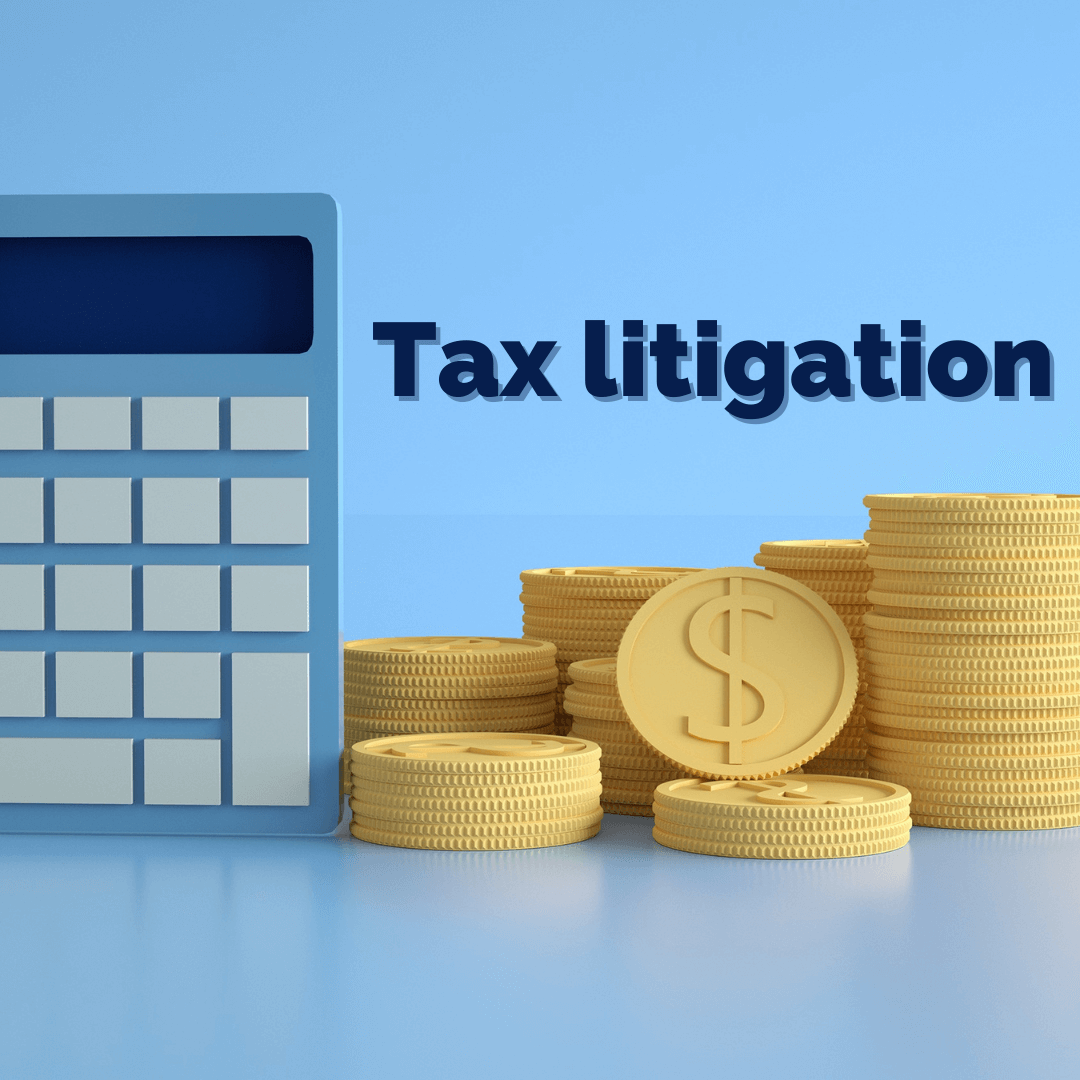
Service Info:
- Short Name : Tax litigation
- Category : Advisory services
- Subcategory : Advisory services
- Amount : ₹0.00
Tax litigation is a legal process were taxpayers, tax authorities, or other stakeholders challenge tax-related disputes in court or before other dispute resolution mechanisms.
Service Description:
Introduction:
Tax litigation may arise due to differences in the interpretation of tax laws or regulations, tax assessments, tax refunds, or any other matter related to taxation. In tax litigation, the courts or dispute resolution mechanisms review the facts and evidence presented by both parties and make a final decision on the matter.
The objective of tax litigation is to resolve tax disputes fairly and effectively while ensuring compliance with tax laws and regulations. Tax litigation is a complex and specialized field that requires knowledge of tax laws, procedures, and court rules.
Tax Litigation Concept
As per Prof. Buchanan in Spring 2007, the tax litigation includes the following key elements: -
- Substance over form: pervades the entire tax law.
- Horizontal equity: those with the same ability to pay should pay the same.
- Vertical equity: those who can pay more, should.
- To the extent: means “by the amount of” (the amount that something exceeds something), not “if.”
- Tax avoidance: try to limit tax liability using reasonable arguments based on the code, e.g., partial reimbursement, expenses partially fully deductible and partially half deductible claim a full deduction claiming that the partial reimbursement was for the half deductible portion.
- Tax evasion: try to take aggressive positions to play with the words of the code, e.g., if you decide to deduct as expense something that was reimbursed, getting lots of income and not reporting it.
In Tax litigations, the substantive question of law must be formulated to file the appeal in the High courts and supreme courts. Generally, the sections 139 -153 (treated as procedural income tax laws) & sections 68-69 and many times disputes arise within these sections leading to the formulation of the substantive question of law.
Key operatives of the Section 68-69:
- Section 68 -Cash credits
- Section 69-Unexplained investments
- Section 69A–Unexplained money, etc.
- Section 69B - Amount of investments, etc., not fully disclosed in books of account.
- Section 69C– Unexplained expenditure, etc.
Income Tax Litigation Cycle
Typical dispute litigation routes the timelines and hierarchy. An innocent taxpayer, after receiving an assessment order, can take the appeal through four appellate forums which are-
- CIT (Appeals),
- ITAT,
- High Courts, and
- Supreme Court.
The current tax litigation process in India usually takes around 12-14 years (if the appeals go up to Supreme Court) to resolve the tax dispute. The time lag is mainly because no timelines are mandated for the conclusion of the proceedings at the appellate forums; there is significant workload, lack of fast-track dispute resolution mechanism, etc.
Frequently Asked Questions:
What is litigation in tax?
Corporate litigation law deals with disputes that arise from non-criminal business and commercial activities. Thus, tax litigation consists of legal actions taken around disputes arising from tax non-payment or delayed payment by the taxpayers or unwanted/unauthorized tax collection by the authorities etc.
What is the tax litigation process in India?
the decision can be further appealed to the Income Tax Appellate Tribunal (ITAT) within 60 days and subsequently to the High Court within 120 days.
What is litigation in indirect tax?
A tax litigation or dispute arises before the tax authority by virtue of a deficiency notice served upon the taxpayer. This brings out the most strenuous time for any taxpayer or organization.

